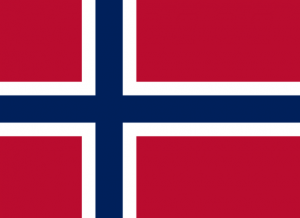Language/Norwegian-bokmal/Vocabulary/Technical-and-scientific-language
Welcome to our journey into the fascinating world of Norwegian Bokmål technical and scientific vocabulary! Understanding this specialized language is crucial, as it opens up doors to a multitude of fields, including engineering, medicine, environmental science, and technology. For beginners, diving into technical language may seem daunting, but fear not! In this lesson, we will explore essential vocabulary and phrases that will help you navigate various scientific and technical discussions in Norwegian.
Lesson Structure[edit | edit source]
1. Introduction to Technical Vocabulary: Why it's important and how it's used.
2. Common Technical and Scientific Terms: A comprehensive list of vocabulary with pronunciation and translations.
3. Practice Exercises: Engaging activities to reinforce your learning.
4. Conclusion and Key Takeaways: Summarizing what you've learned.
Introduction to Technical Vocabulary[edit | edit source]
Technical and scientific language comprises specialized vocabulary and phrases used in specific fields. Mastering this vocabulary is vital for effective communication in academic and professional environments. In Norway, where industries like engineering, IT, and healthcare thrive, being proficient in these terms can enhance your career opportunities and deepen your understanding of technical subjects.
This lesson will focus on 20 essential technical and scientific terms, categorized by their fields, along with their Norwegian Bokmål translations and pronunciations. After that, we will engage in practical exercises to solidify your knowledge.
Common Technical and Scientific Terms[edit | edit source]
Below is a table that lists some essential Norwegian Bokmål vocabulary used in technical and scientific contexts:
| Norwegian Bokmål | Pronunciation | English |
|---|---|---|
| teknologi | tɛknɔlɔɡi | technology |
| vitenskap | vitɛnskɑp | science |
| ingeniør | ɪŋjɛnøːr | engineer |
| kjemi | ʃɛmɪ | chemistry |
| fysikk | fyːsɪk | physics |
| matematikk | mɑtɛmɑtɪk | mathematics |
| biologi | biɔlɔɡɪ | biology |
| miljø | mɪljø | environment |
| ressurs | rɛsʏrs | resource |
| data | dɑtɑ | data |
| system | sʏstɛm | system |
| prosess | prɔsɛs | process |
| forskning | fɔrʃnɪŋ | research |
| utvikling | ʉtʋɪklɪŋ | development |
| analyse | ɑnɑlɪsɪ | analysis |
| teori | teːɔrɪ | theory |
| eksperiment | ɛkspɛrɪmɛnt | experiment |
| teknologiutvikling | tɛknɔlɔɡɪʉtvɪklɪŋ | technology development |
| helse | hɛlsə | health |
| sikkerhet | sɪkɛrˌhɛt | safety |
| kjemisk | ʃɛmɪsk | chemical |
These terms are foundational for anyone looking to get involved in technical or scientific conversations in Norwegian.
Practice Exercises[edit | edit source]
Now that you've been introduced to some key vocabulary, let’s put your knowledge to the test with a series of exercises!
Exercise 1: Vocabulary Matching[edit | edit source]
Match the Norwegian Bokmål term with its English translation.
1. teknologi
2. kjemi
3. ingeniør
4. forskning
5. sikkerhet
Answers:
1. technology
2. chemistry
3. engineer
4. research
5. safety
Exercise 2: Fill in the Blanks[edit | edit source]
Complete the sentences with the correct vocabulary from the list below.
- (teknologi, helse, fysikk, miljø)
1. ________ er viktig for å forstå energibehovet.
2. ________ forbedrer livskvaliteten vår.
3. Ny ________ utvikles hver dag.
4. Vi må ta vare på vårt ________.
Answers:
1. Fysikk
2. Helse
3. Teknologi
4. Miljø
Exercise 3: True or False[edit | edit source]
Determine if the following statements are true or false.
1. "Kjemi" means "biology."
2. "Ingeniør" translates to "engineer."
3. "Data" is the same in both Norwegian and English.
Answers:
1. False
2. True
3. True
Exercise 4: Translation Exercise[edit | edit source]
Translate the following phrases into Norwegian Bokmål.
1. "The engineer is conducting research."
2. "Safety is a priority."
3. "Technology influences our lives."
Answers:
1. "Ingeniøren forsker."
2. "Sikkerhet er en prioritet."
3. "Teknologi påvirker livene våre."
Exercise 5: Short Answer[edit | edit source]
Answer the following questions in Norwegian Bokmål:
1. Hva betyr "miljø"?
2. Hvilket fag handler om "matematikk"?
Answers:
1. "Miljø" betyr "environment."
2. "Matematikk" handler om tall og beregninger.
Exercise 6: Vocabulary in Context[edit | edit source]
Create a short paragraph using at least five of the terms we have learned.
Example Answer:
"Teknologi og forskning er viktige for utviklingen av helse og sikkerhet. Fysikk og kjemi hjelper oss å forstå miljøet bedre."
Exercise 7: Multiple Choice[edit | edit source]
Choose the correct translation for the following term: "biologi."
1. a) physics
2. b) biology
3. c) technology
Answer:
b) biology
Exercise 8: Sentence Construction[edit | edit source]
Using the words provided, create a meaningful sentence.
Words: (forsker, teknologi, utvikling, viktig)
Example Answer:
"Forskning innen teknologi er viktig for utviklingen av samfunnet."
Exercise 9: Crosswords[edit | edit source]
Create a crossword puzzle using the vocabulary words learned in this lesson.
Answers will vary depending on the puzzle created.
Exercise 10: Group Discussion[edit | edit source]
In groups, discuss how technology affects our daily lives, using the vocabulary learned.
Guidelines for Discussion:
- Use at least three vocabulary terms.
- Encourage each member to contribute.
Conclusion and Key Takeaways[edit | edit source]
Congratulations! You've ventured into the realm of Norwegian Bokmål technical and scientific vocabulary. Understanding these terms not only enriches your language skills but also equips you to engage in meaningful conversations about science and technology in Norway. Keep practicing these words, and don't hesitate to use them in real-life contexts.
Remember, language learning is a journey, and a solid vocabulary base is your stepping stone to success. Keep exploring the Norwegian language, and soon you'll find yourself conversing with confidence!
Other Lessons[edit | edit source]
- Valentines Day
- Idiomatic Expressions
- Food
- Engineering and technical jargon
- Hobbies and leisure activities
- Count to 10
- Legal and financial jargon
- Weather
- Vehicles
- Fruits

